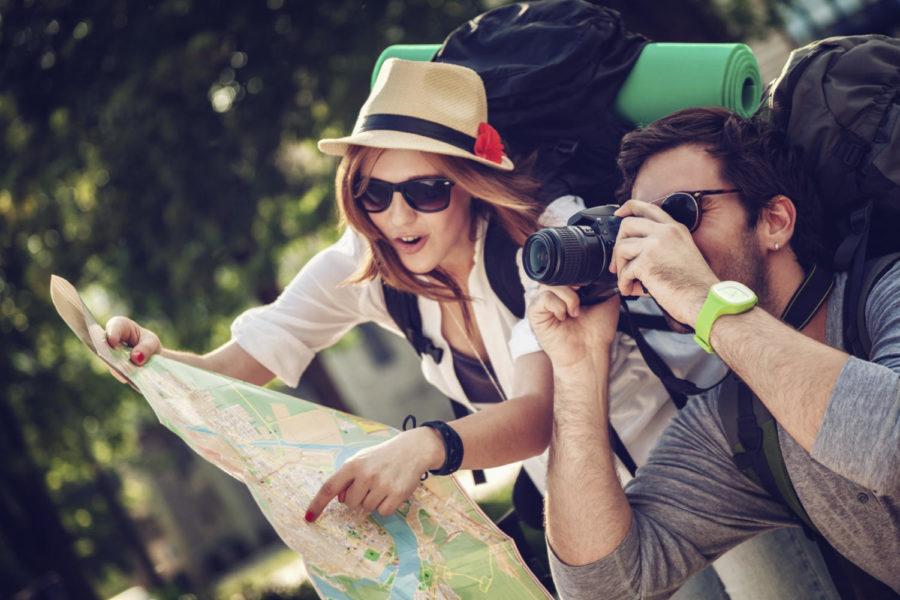Kelly: Optimize international experiences
April 21, 2016
The National Travel and Tourism Office reported in 2015 that nearly 33 million Americans traveled abroad. With international travel becoming more popular, whether it’s for a study abroad program, internship, business trip or simply a vacation, countless articles and checklists are available online that list tasks to complete and items to pack in preparation for an international experience. While these preparations are great, the most important thing to do before traveling overseas is perhaps to prepare mentally.
Through my own international experiences, I have found these tips essential in order to optimize learning and overall experiences while spending time in different cultures:
Keep an open mind
While at first this may seem to be common sense, it may be more difficult to maintain once submerged into a different culture. It can be especially difficult to maintain in Western European cultures, which at the foundation, seem very similar to our own. However, many people fail to realize that these cultures still feature a large amount of differences from our own.
If you enter a new unfamiliar culture with the expectations that it will mirror the customs of your own, you are likely to not only be disappointed but also miss out on a large portion of the learning experience that comes with spending time in another culture.
I have found it useful to reference the Ronald Heifetz’s Adaptive Leadership Model in order to optimize international experiences. This learning model consists of observation, interpretation and engagement.
When you first find yourself in a new culture or environment, it’s important to observe the actions of those around you. Some things that commonly go unnoticed in your culture may come across as strange, rude or even illegal in a new culture. This is why it’s important to keep an open mind throughout the entire process.
After you spend time interacting with those around you, you can begin to interpret what these actions mean. You are likely to establish a greater understanding of the values the culture resembles and possibly even take away a few of these ideals to incorporate into your own lifestyle.
Once you have observed and interpreted the environment, you should begin to engage. Engaging before this point could not only tamper with your learning and understanding of the culture but could also leave you with a much greater risk of accidentally insulting someone.
While it’s important to observe, interpret and engage, it’s also important to note that the process is ongoing. If you hope to maximize your experience, you will need to continue observing and interpreting even while you are engaging with the culture.
Don’t jump to conclusions. Instead of getting upset at the restaurant or tourist guide for what you would classify as “poor service” or something unexpected, appreciate the fact that you got to experience a different culture’s values and norms first hand.
Don’t over plan
Proper planning prevents poor performance. American culture closely relates to this popular saying. As Americans, it is common for us to constantly plan out our days. Whether it’s managing our time, planning a date, scheduling weekend activities or preparing for summer vacation, it’s common for us to develop a plan for almost every aspect of our lives.
Depending on where you travel, you may not see this amount of planning elsewhere. However, regardless of the culture you intend to visit, planning can quickly and easily ruin your international experience.
As cliché as it may sound, you can only plan for things that you can anticipate. While visiting the large well-known tourist attractions is likely a must, you are much more likely to miss the hidden gems of the country if you only visit tourist hotspots. Don’t be afraid to travel off the beaten path. As J.R.R. Tolkien put it, “Not all those who wander are lost.”
The most beneficial experiences you will have are likely to be the ones you didn’t plan for. Don’t walk past the unique street performers and pretend to be looking at your phone or avoid local festivals because you’re too focused on the map when trying to find your way to the Eiffel Tower.
Set realistic expectations
We are often sold on the idea of traveling abroad by the stories and experiences shared by our friends, families, organizations or versions we see in movies and on TV. It’s important to note that the experiences being shared are typically the highlights of their trips, not their entire trip.
If you expect to travel abroad and have a memorable Hollywood-styled night every night, you are likely to be disappointed. While these nights are still likely to occur, there will also be nights where you will find yourself staying in. It’s likely there will be times you go out only to find empty streets. However, there is no such thing as a bad experience. Every experience you have will be new and educational.
It’s important you don’t get discouraged from these experiences — or what you may view as non-experiences, because nothing is a non-experience. Don’t blow off talking to the group of locals, which could be the highlight of your trip, because you’re too upset your concert was rained out.
International perspectives — beyond the category of general education credit classes offered at Iowa State — can change the way you look at the world. However, if you enter a new culture with a closed mind, a list dictating your every move and unrealistic expectations of your time, you are likely to miss out on the real beauty of traveling to a new culture.







